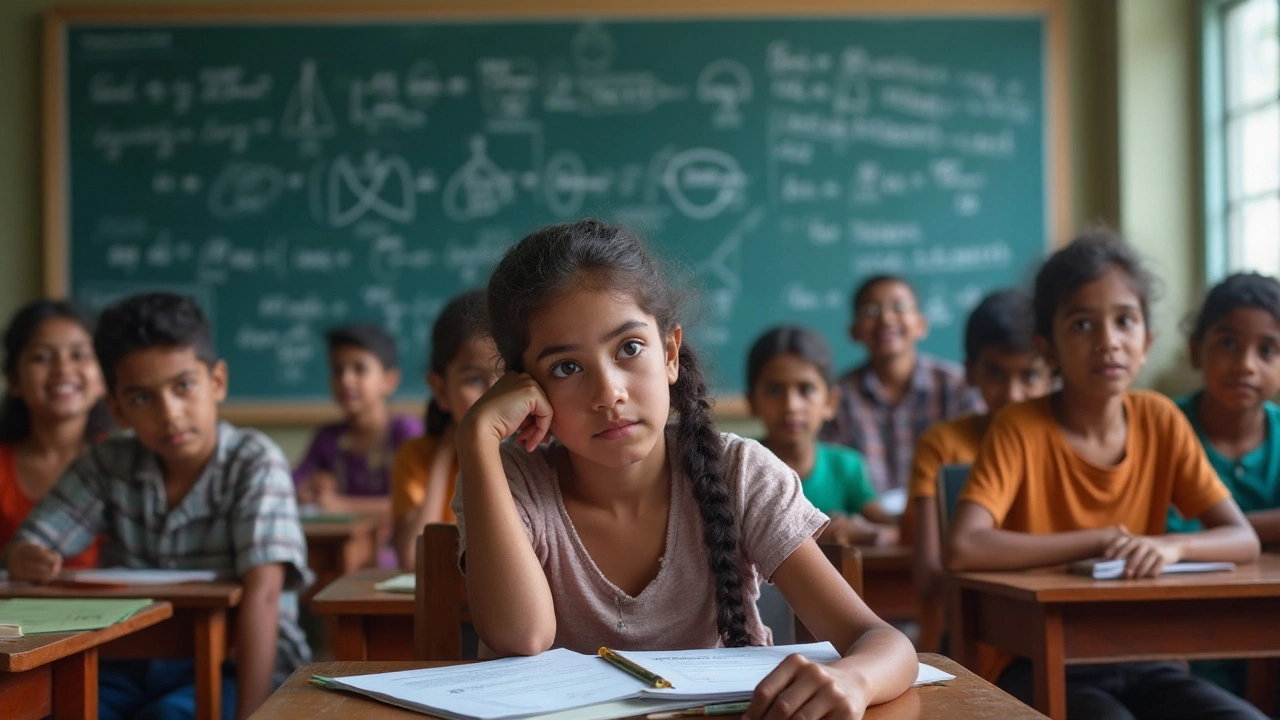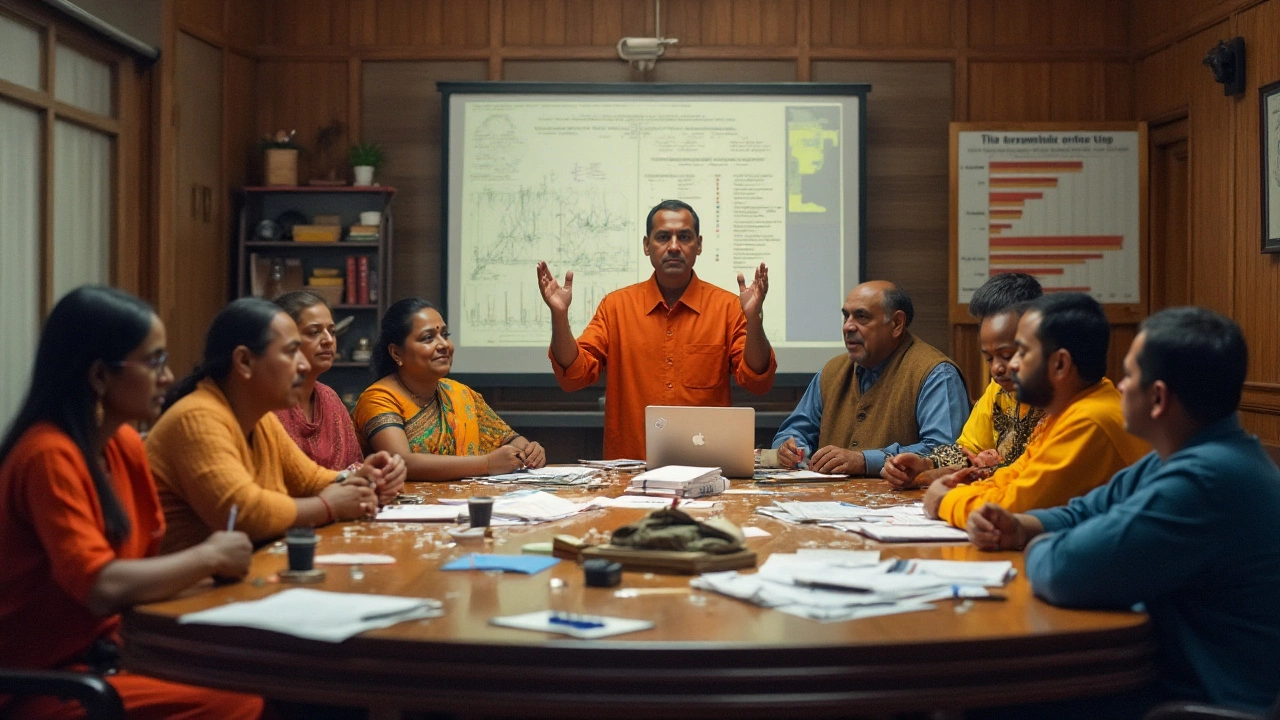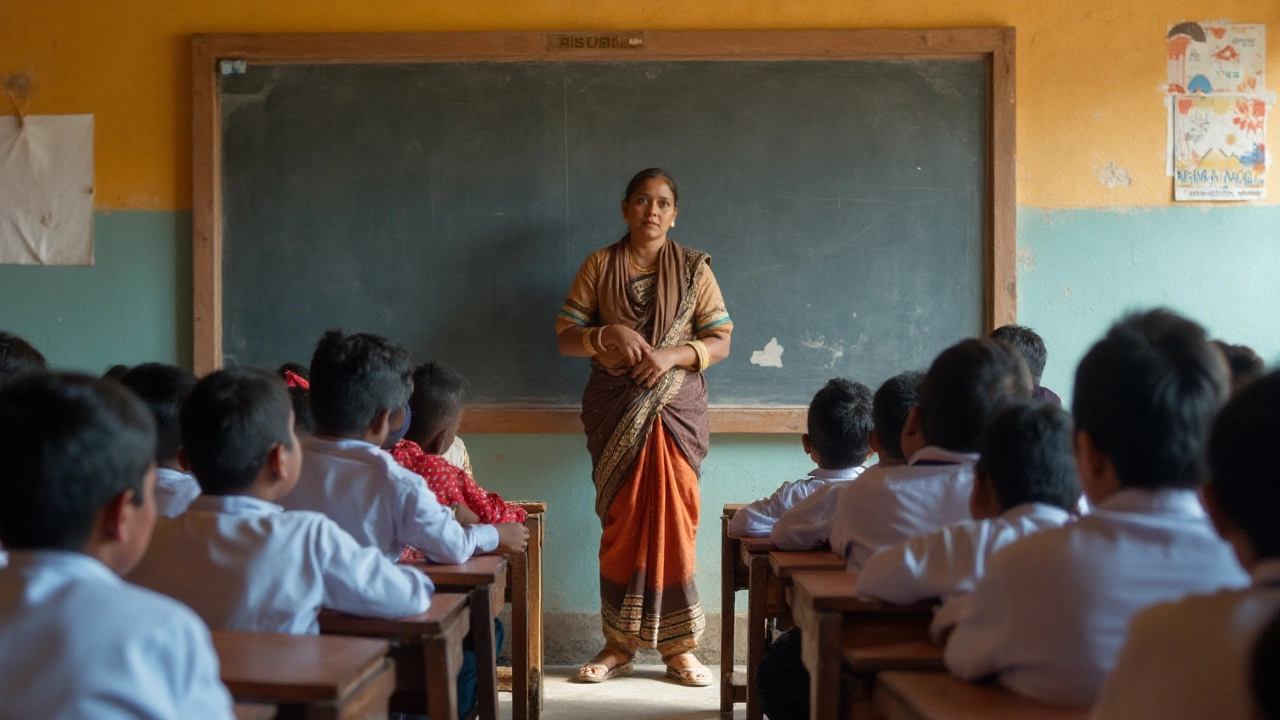States Challenging the NEET System in India

India's National Eligibility cum Entrance Test, commonly known as NEET, has been an essential gateway for medical aspirants striving for MBBS and BDS courses. However, this one-size-fits-all exam framework has not been welcomed with open arms across the varied states of India. Ever since its inception, disputes and discussions have flared up around its applicability and fairness.
For some states, NEET presents an array of challenges that highlight disparities rather than bridge them. The crux of the opposition often roots itself in the clash between national standardization and regional educational autonomy. Differences in educational syllabuses, language barriers, and socio-economic disparities fuel the friction, making it a complex issue to unravel.
This narrative explores which states are opting out of the NEET compulsions, the reasons behind their stance, and the broader implications on their local education systems. As we delve deeper into these stories, we hope to shed light on what could potentially be a transformative change in the Indian educational mosaic, offering food for thought for stakeholders at all levels.
- Background and Purpose of NEET
- States Against NEET and Their Concerns
- Impacts on Local Education Systems
- Proposed Alternatives and Solutions
Background and Purpose of NEET
The National Eligibility cum Entrance Test, or NEET, is a pivotal examination for aspiring medical students in India. Established to streamline the admission process for medical and dental colleges, NEET emerged from a dire need to unify the myriad layers of entrance exams previously conducted by individual states and institutions. The motive was clear: minimize confusion, reduce the financial burden on students traveling for numerous tests, and enforce a standard benchmark for educational quality.
The precursor to NEET was a mélange of entrance exams, each state and medical institution having its distinct format and requirements. Such a fragmented system not only spelled logistical chaos for students but also highlighted disparities in educational standards. Passing NEET thus became not just an aspiration but a necessity to qualify uniformly across the country. Introduced by the Medical Council of India (now the National Medical Commission) and governed by the National Testing Agency (NTA), NEET has transformed the medical educational landscape since its enforcement in 2013.
NEET's execution aligns with the vision to uphold transparency and meritocracy in medical admissions. By adopting a single paper format based on core subjects—Physics, Chemistry, and Biology—it sought to level the playing field. Critics, however, argue that it doesn't consider regional educational disparities or linguistic barriers comprehensively. NEET remains an intriguing case study of balancing national educational standards with respect for local curricula and languages. "NEET should be seen as a solution to the chaotic admissions procedure, yet its implications on equality in education cannot be underestimated," commented Dr. Ashok Jhunjhunwala, a renowned educationist, during a symposium on educational reforms.
The transition hasn't been devoid of controversy. States such as Tamil Nadu and Maharashtra have voiced serious apprehensions, citing the exam's structure as disproportionately affecting students from rural and regional medium backgrounds. This converted NEET into not just an academic test but a fulcrum of socio-political debate, questioning the very ethos of educational egalitarianism. Even within this context, the exam serves as a benchmark of aspirations for millions each year, bearing testimony to its significance in the Indian educational framework.
Integrating suggestions and feedback, the NTA continues to refine the process. Key data from the recent years suggest rising number of participants, with over 17.5 lakh students registering in 2023 alone for approximately 90,000 seats in medical and dental courses. Such numbers highlight the test's immense reach and its integrated role in shaping India's future medical landscape. Nonetheless, the tug-of-war between standardization and regional adaptation makes NEET a subject of dynamic discourse and ongoing evaluation.

States Against NEET and Their Concerns
Among the diverse landscape of India's educational systems, a significant array of states has voiced its objections to the current NEET exam structure. Tamil Nadu, Maharashtra, and West Bengal have been notably vocal in expressing their dissent, citing a myriad of reasons rooted deeply in concerns over educational equity and regional autonomy. These states argue that NEET does not consider the disparities in local syllabus and the linguistic diversity that India's different regions embody. These issues have been significant enough to stir debates and even lead legislative proposals to opt out or modify NEET participation.
The state of Tamil Nadu has been particularly prominent in its stance against NEET, arguing that it undermines the reservation systems designed to support underprivileged communities. A significant proportion of students in Tamil Nadu's school systems come from rural or economically disadvantaged backgrounds, and the uniform national test often places them at a competitive disadvantage. In fact, a legislative proposal in Tamil Nadu seeks exemption from NEET, basing admissions on Class 12 scores instead, ensuring that linguistic and educational diversity is respected.
West Bengal has raised concerns about the stress and pressure that NEET places on students, further exacerbated by differences in syllabus and teaching methods. The state's Chief Minister has actively expressed that the centralization of medical exams may ignore nuances and regional requirements, leaving students feeling alienated from their future prospects. Statistics suggest that a significant number of students faced emotional distress due to the pressures of preparing for a single decisive exam.
Similarly, Maharashtra's issues with NEET revolve around the idea that the test does not accommodate linguistic diversity, with many students preferring to undertake exams in their mother tongue. The preference for English and Hindi has meant that students educated in regional languages often feel left out, skewing results and opportunities disparately. According to the Maharashtra Educational Board, allowing regional languages like Marathi in NEET could dramatically improve outcomes for local students.
“NEET undermines the unique educational framework we've nurtured over decades,” remarked a prominent educational commentator in West Bengal, highlighting the disconnect between a centralized testing system and local educational goals.
As the debate around NEET continues, it becomes crucial to consider these perspectives, weighing the benefits of a standardized exam against the cultural and educational intricacies of India's vast state landscape. Alternatives proposed by these states often focus on integrating regional languages and adapting exams to state syllabi, seeking a harmonious balance between national standards and local contexts.

Impacts on Local Education Systems
The National Eligibility cum Entrance Test (NEET) has sparked significant debates and adjustments in local education systems across various Indian states. The uniform nature of NEET, while bringing standardization in medical admissions, has profoundly affected regional educational methods and syllabi alignment. By centralizing the admission process, NEET inadvertently overlooks the diverse educational backgrounds and linguistic variations inherent to India’s states, potentially disadvantaging students from non-CBSE or ICSE curricular frameworks which are more aligned with what NEET tests.
For instance, Tamil Nadu, a state at the forefront of the opposition against NEET, argues that the exam negates the state's progressive educational policies. Tamil Nadu had abolished Class 12 board exam marks for medical admissions, replacing them with NEET scores, arguing it skews opportunities towards those who can afford specialized coaching. This has wider ramifications. The increased importance of coaching centers has sidelined traditional school education, which many argue is crucial for holistic development. Consequently, parents often face inflated coaching costs, exacerbating socio-economic divides. A local educator in Chennai was quoted saying,
“The emphasis on NEET not only sidelines our curriculum but also compels our students to abandon their comprehensive learning approach in favor of an exam-oriented strategy.”
Additionally, the imposition of a single language predominantly English or Hindi in the examination presents significant challenges. Many states like Andhra Pradesh and Assam have highlighted how this language barrier causes undue stress among students whose medium of education might be regional languages. As an effect, students from such backgrounds often requiring expensive language coaching, which is an additional burden for families in lower socio-economic strata.
Moreover, NEET’s emphasis on nationalized content over state-specific curriculum content leads to a misalignment between the taught syllabus and exam preparation. This necessitates significant revamping of state syllabus which can strain already resource-limited educational boards. The reallocation of focus from state education to meet NEET criteria also leads to a neglect of regional history, language, and practices, which are crucial for cultural continuity and identity. This creates a homogenizing impact, risking loss of educational diversity that is India’s strength.
In response to these challenges, several educational boards are advocating for a more inclusive exam structure that respects federal diversity. Negotiations for inclusion of state board content into NEET syllabus and provision of exam material in more languages are ongoing. These potential adaptations could ease some structural strains, ensuring a fairer and more balanced examination system. While change might be slow, the hope is for a system that acknowledges and bridges India’s vast educational spectrum, ensuring no student loses their chance due to systemic barriers.

Proposed Alternatives and Solutions
Over the years, the clamorous debate around the NEET exam has compelled stakeholders to consider a spectrum of alternatives and solutions, aimed at making the medical entry process more equitable across India’s diverse states. States have voiced strong opinions about the necessity to maintain a balance between a nationally unified examination like NEET and the preservation of their unique educational standards. The push for solutions is not just about resisting change but about ensuring that the change benefits every aspirant, regardless of their background.
One proposed alternative is the introduction of a dual examination system. This system would allow states to conduct their own entrance tests alongside NEET. This could cater to specific state curricula and provide students with the flexibility of choice in the test that aligns with their strength. Tamil Nadu, one of the longstanding critics of NEET, has spearheaded discussions around crafting this parallel approach to bypass the perceived limitations of the national exam. Advocates argue that it would allow regional languages and subjects to hold their rightful place, thus leveling the playing field for students from state-board schools.
Another suggestion gaining traction is the enhancement of preparatory resources for students. Kerala has taken steps toward this by improving access to quality NEET coaching at government-funded educational centers. This initiative tries to bridge the gap for economically disadvantaged students who often find themselves at a disadvantage without the means for expensive coaching classes. Emphasizing such preparatory support acknowledges the crucial role guidance plays in competitive exams and seeks to afford every student an equal opportunity to excel.
Dr. S. Selvaraj of the Centre for Policy Research notes, “What we propose is not a blanket rejection of NEET, but a nuanced integration aimed at inclusivity and fairness. We must embolden our regional systems to work in tandem with national ambitions.”
Moreover, there are recommendations to develop a structured feedback mechanism for continuous improvement of the NEET framework itself. This involves actively engaging teachers, students, and educational analysts in conversations about the content, structure, and accessibility of the exam. Modi's government has shown interest in engaging with these conversations, tacitly acknowledging the evolving dynamics of India's educational landscape.
Statistics and data have started playing a vital role in molding these solutions. A survey conducted by the Institute for Policy Research (IPR) revealed that 68% of students across various states are supportive of reforms that incorporate regional specifics into the testing criteria. Such data underscores the importance of adaptable solutions that resonate with the student body. A creative synergy between national standards and regional autonomy could provide the strategic pivot necessary to overcome the reservations surrounding NEET.
As we explore these proposed alternatives and solutions, it’s crucial to engage various stakeholders in dialogues geared toward inclusive education policy. The end goal remains a balanced landscape where academic competence aligns with fairness, providing every aspiring medical student an equal shot at realizing their dreams.
Write a comment